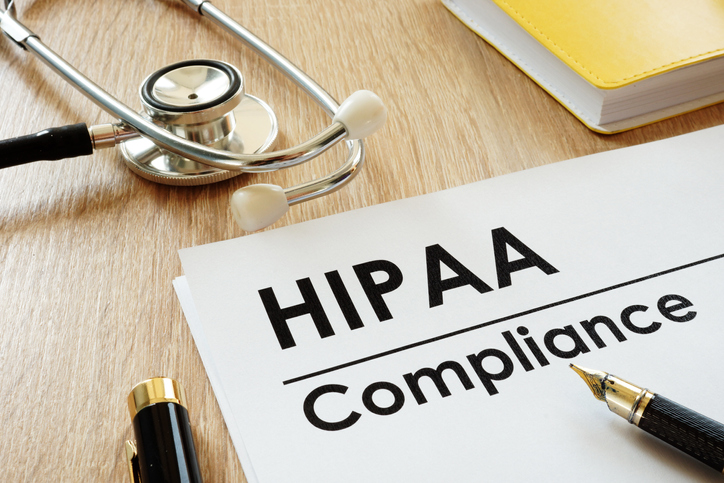The U.S. Department of Health and Human Services (HHS) wants to limit state access to private medical records related to abortion and treatment of gender dysphoria in minors.
HHS has proposed a rule that would prevent states from using the information to
investigate violations of laws under the umbrella of “reproductive health care,” most notably, limits on abortion, but also laws restricting transgender medical and surgical treatments on minors.
HHS published the rule change, “HIPAA Privacy Rule to Support Reproductive Health Care Privacy” on April 17. The comment period ended on June 16. The agency received 25,905 comments.
The proposed regulation “repeats the lie” that HIPAA (Health Insurance Portability and Accountability Act of 1996) protects privacy, says Twila Brase, the author of Big Brother in the Exam Room and founder and president of Citizens’ Council for Health Freedom.
“HIPAA allows data sharing of private medical records without the patient’s consent except apparently now for abortion, and other ‘reproductive health care,’ which will suddenly be exempted from the definition of ‘public health’ when referring to surveillance and investigations,” said Brase. “Suddenly HIPAA is a threat to the agenda of the pro-abortion and perhaps the pro-trans crowd.”
(See “Is the Government Changing HIPAA to Block State Law Enforcement? – Twila Brase, The Heartland Daily Podcast, July 17, 2023)
Rule Highlights the HIPAA Hoax
Brase says HIPAA really protects health care providers when they share patient data, as they increasingly do through electronic health records. The proposal to change the rule makes this apparent.
“The government has proposed a revision of the HIPAA rule to make abortion and reproductive services data a special class of protected data, unavailable to anyone seeking to use it to enforce state laws against abortion,” said Brase.
“People getting an abortion likely believe that HIPAA protects the privacy of that abortion, but regulators know that HIPAA does not protect anyone’s privacy,” said Brase. “So, to advance their reproductive agenda, they’re now trying to give people seeking reproductive, transitioning, and abortion services the privacy that every patient in America wants, the privacy that every patient thinks they have under HIPAA, and the privacy that every patient is deprived of every day because of HIPAA, which is really a permissive data sharing rule.”
‘Violence to Federalism’
“The proposal’s poor draftsmanship and confusing structure alone are enough to render it in violation of the Administrative Procedure Act, if not the Due Process Clause of the constitution,” Roger Severino, a former director of the HHS Office for Civil Rights, wrote in his comment on the proposed rule.
More concerning is the attack on federalism, writes Severino, especially after HHS Secretary Xavier Becerra “made it abundantly clear” after the Supreme Court restored abortion regulation back to the states he would “double down and use every lever we have to protect access to abortion care.”
Severino wrote, “HIPAA simply cannot be drafted to get in their (states’) way without doing violence to federalism and the rule of law. The Department’s proposal is arbitrary, capricious, and would create intolerable conflicts with law.”
Protecting Children, Crime Victims
In its comment, the public interest law firm Alliance Defending Freedom (ADF) said the proposed rule could extend to enforcement of laws limiting or prohibiting transgender surgeries and medical treatments on minors.
“The proposed rule goes far beyond abortion: it defines “reproductive health care” so broadly that it sweeps in information about sterilizing interventions sought by persons identifying as members of the opposite sex, such as puberty blockers, cross-sex hormones, and genital surgeries,” wrote ADF attorneys Julie Marie Blake and Timothy Garrison.
“All of the problems in the proposed rule identified in the abortion context are thus extended and multiplied to this context as well, given that an increasing number of states regulate and prohibit these procedures, especially for minors,” wrote Blake and Garrison.
Human Trafficking Concerns
Brase says the proposed rule makes reference to a “personal representative” under “reproductive health care.”
“Is this ‘representative’ section intended to circumvent parents?” asks Brase. “Is it also meant to make sure that health care providers fear transgressing HIPAA and being hit with hefty penalties? Due to the prohibition on sharing such data, the charges will never be explained to the media or the public, likely leaving the provider with a tarnished reputation.”
There is also concern the proposed rule could hamper investigations into human trafficking.
“Criminals who victimize women or girls who may become pregnant as a result of a sex crime have an obvious and nefarious interest in obtaining abortions: the abortion destroys evidence of the crime and, in the case of sex trafficking or serial sexual abuse, preserves the ability of the criminal to continue to victimize the mother of an aborted child,” wrote Blake and Garrison.
Real Patient Privacy
“The department’s proposed regulation to protect abortion data highlights why HIPAA needs to be a real privacy law, not a fake privacy law,” said Brase. “Every American should demand restoration of pre-HIPAA consent requirements and the longstanding (back to the Hippocratic Oath) ethical and legal obligations of health care practitioners and other providers to protect the privacy and confidentiality of patient data.”
States should also have the authority to draft their own health privacy laws. “Then, in the case of this issue, the states would decide what they do about abortion and reproductive services data, and the feds could not intervene,” said Brase.
AnneMarie Schieber (amschieber@heartland.org) is the managing editor of Health Care News.
